

| Nihil Obstat: | Michael L. Dempsey, S.T.D.
Theol. Censor Deputatus |
| Imprimatur: |  | John Carol
Archbishop of Dublin, Primate of Ireland
Dublin, December 8, 1948 |
| Imprimi Potest: | Patrick OCarroll, C.S.Sp.
Provincial Superior |
| Imprimi Potest: | Fr. Bernard Marie, O.P.
Vicar Provincial of the Free Zone
July 8, 1941 |
First U.S. publication was in 1948, by B. Herder Book Company, St. Louis, Missouri.
The type in this book is the property of TAN Books, an Imprint of Saint Benedict Press, LLC, and may not be reproduced, in whole or in part without written permision of the publisher.
Library of Congress Catalog Card No.: 93-61564
ISBN: 978-0-89555-499-4
Cover design by Tony Pro.
Cover Image: La Vierge au Lys by William Bouguereau, Art Renewal Center, www.artrenewal.org.
Printed and bound in the United States of America.
TAN Books
Charlotte, North Carolina
2012
TO THE BLESSED VIRGIN MARY
MOTHER OF GOD
AND OUR MOTHER
who placed all her greatness in God
and was filled by Him with good things,
in token of profound gratitude
and filial obedience.
 Translators Preface
Translators Preface 
A theologian of the eminence of Father Garrigou-Lagrange does not himself need to be introduced to the public. This present work of his would, however, seem to invite a few words of explanation.
It is not a devotional book in the ordinary sense of the term: it is too openly theological for that. On the other hand, it is no mere theological treatise: the authors aim has been to inflame hearts no less than to enlighten minds. The result is a work which demands more intellectual application than many others on Our Lady. But, by way of compensation, it touches the will at a deeper and more spiritual level than would a work of less rich content. The authors insistencea fully justified one on the doctrinal side of his subject has, of course, left little room for mere literary ornament. But this lack, if lack it be, will not turn away any reader who is sincerely desirous to know Our Lady better.
As for the translation itself, though care has been taken not to attribute to Father Garrigou-Lagrange anything he did not write, it has not been possible always to translate the original with literal fidelity. Theologians who wish to use the book for strictly scientific purposes would be well advised to compare passages they intend to quote with the original. The translator will be glad to supply it, if necessary, as far as possible.
H OLY G HOST M ISSIONARY C OLLEGE ,
K IMMAGE , Corpus Christi, M AY 27 TH , 1948.
 Authors Preface
Authors Preface 
This book is intended to be an exposition of the principal theses of Mariology in their bearing on our interior life. While writing it I have noticed more than once how often it has happened that a theologian admitted some prerogative of Our Lady in his earlier years under the influence of piety and admiration of her dignity A second period then followed when the doctrinal difficulties came home to him more forcefully and he was much more reserved in his judgement. Finally there was the third period, when, having had time to study the question in its positive and speculative aspects, he returned to his first position, not now because of his sentiment of piety and admiration, but because his more profound understanding of Tradition and theology revealed to him that the measure of the things of Godand in a special way those things of God which affect Maryis more overflowing than is commonly understood. If the masterpieces of human art contain unsuspected treasures, the same must be said, with even more reason, of Gods masterpieces in the orders of nature and grace, especially when they bear an immediate relation to the Hypostatic Order, which is constituted by the mystery of the Incarnation of the Word. I have endeavoured to show how these three periods may be found exemplified in the process of St Thomas teaching on the Immaculate Conception.
These periods bear a striking analogy to three others in the affective order. It has often been noticed that a souls first affective stage may be one of sense-perceptible devotion, for example to the Sacred Heart or the Blessed Virgin. This is followed by a stage of aridity. Then comes the final stage of perfect spiritual devotion, overflowing on the sensibility. May the Good God help the readers of this book who wish to learn of the greatness of the Mother of God and men to understand in what this spiritual progress consists.
The doctrines proposed in this book are not personal ones: it has been my aim to give what is most commonly held by theologiansespecially those of the Thomistic schooland to explain the various points in the light of St. Thomass principles. Lastly every effort has been made to avoid merely metaphorical expressions. There are sometimes too many of them in books on Our Lady. A bibliography is given with each question treated.
For the positive part of the book, I have made extensive use of Fr Merkelbachs Mariologia. Although I have differed from him in some matters, his book seems to me worthy of the highest praise in its speculative parts as well, both as regards the order of the questions and the accuracy of his theological arguments.

Table of Contents

PART I
The Divine Maternity and the Plenitude of Grace

Chapter 1
The Divine Maternity: Its Eminent Dignity
T HE two truths which stand out like mountain peaks in the chain of revelation concerning Our Blessed Lady, and around which cluster all other truths we hold about her, are her divine maternity and her fullness of grace, both of which are affirmed in the Gospels and in the Councils of the Church. To grasp their importance it will be well to compare them, asking which of the two comes first, and gives, as it were, the true Pisgah view of all Mariology. In that spirit have theologians enquired which was the greater of Marys prerogatives, her divine maternity (her motherhood of God) or her fullness of grace.
The Problem Stated
There have been theologians and of charity which was the principle of Marys supernatural and meritorious acts was superior to her divine maternity a privilege in itself of the corporeal order only.
According to many other theologians believed the words of the Angel Gabriel: And behold thou shalt be dumb because thou hast not believed my words. ( Luke 1:20).
Next page
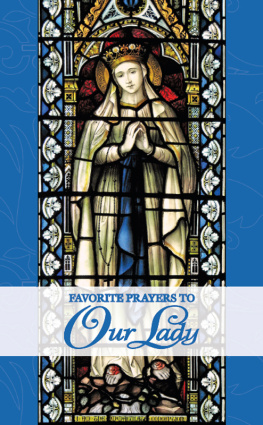
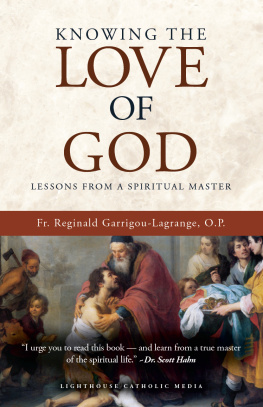
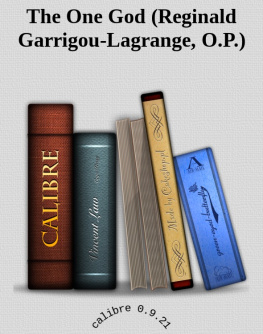
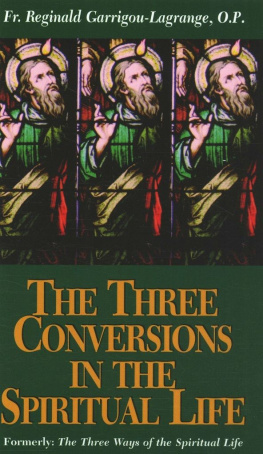
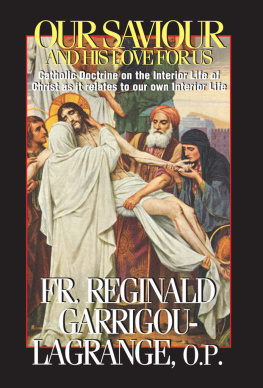
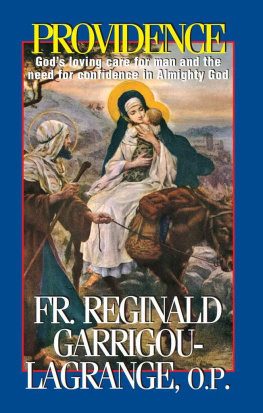
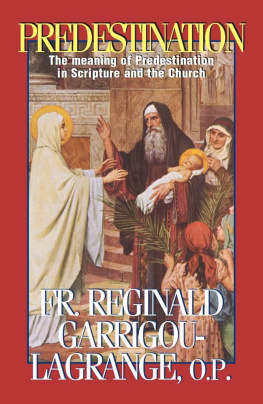

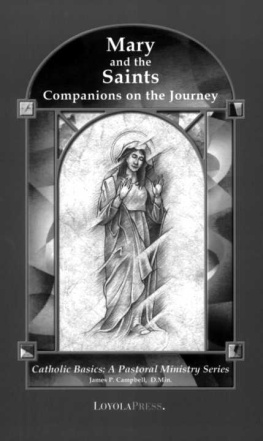
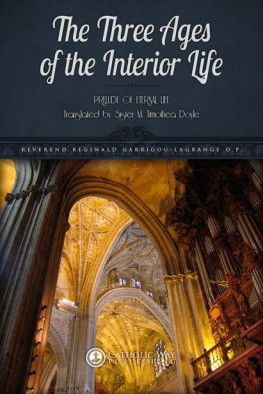
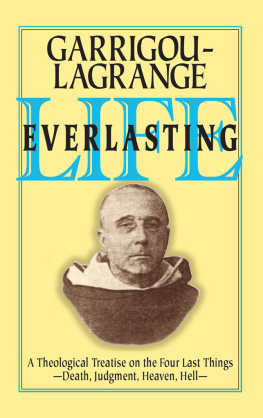
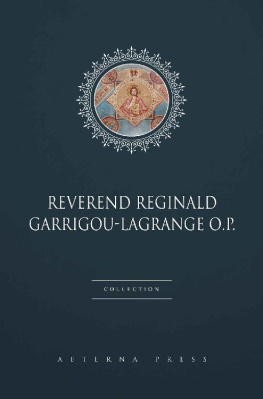



 Translators Preface
Translators Preface 